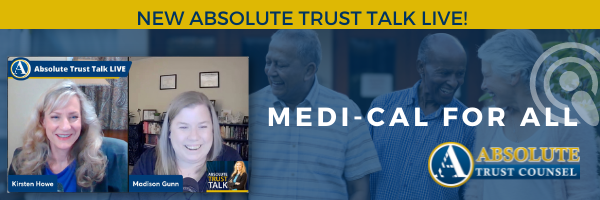



As estate planning and trust administration attorneys, we run into quite a few issues regularly with clients where the issue can be resolved by looking at specific documents. Often, the clients cannot find those documents, either because they are very old or because they do not appear to be very important. Here we will go through a list, although not…

When completing any estate planning, including a trust, will, power of attorney, or health care directive, the person signing the documents must have what is called “capacity” in order to sign the documents. There are two kinds of capacity in estate planning: testamentary capacity and contractual capacity. Testamentary capacity is a lower form of capacity and is required by a…


As you and your loved ones age, you might wonder what are the available options for housing for seniors, and what is the right fit? The good news is that there are several broad options for senior housing and within each option is a spectrum of smaller options to best meet your needs. We will break each housing option down…
The California Department of Health Care Services recently announced new Medi-Cal resource numbers for 2021. In All County Welfare Directors Letter (ACWDL) 20-27 the Community Spouse Resource Allowance (CSRA) was increased to $130,380 and the Minimum Monthly Maintenance Needs Allowance (MMMNA) was increased to $3,260 for 2021. The CSRA is the amount of non-exempt assets that the spouse of a Medi-Cal applicant…
Estate planning is not just for seniors. Ideally, as soon as you turn eighteen you should have some version of an estate plan because your parents are no longer automatically able to make decisions or act on your behalf. There are several reasons to create a power of attorney for finances once you turn eighteen. For example, the military helps…
It’s never too early to start planning for eldercare, whether for a relative, a spouse, or yourself. Generally, eldercare is separate and distinct from nursing home care. Nursing homes provide medical and personal care in a clinical setting. Eldercare offers personal care in a home-like or social setting. In California, there are three primary types of eldercare: Assisted living, home…
The passage of the U.S. Achieving a Better Life Experience Act of 2014 (ABLE) enabled millions of disabled Americans to save money without losing means-based benefits, such as Supplemental Security Income (SSI) and Medi-Cal. Currently, anyone with more than $2,000 in countable assets is ineligible for most means-based programs. Prior to ABLE, it was impossible to save funds for larger…



